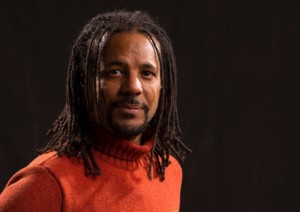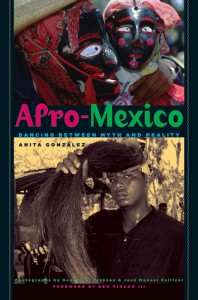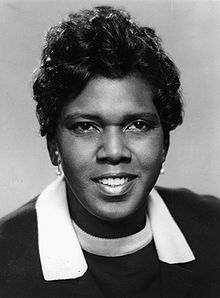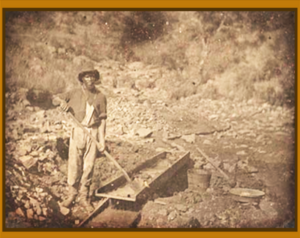The Rediscovered African American Last Supper Sculpture Will Stay in DC
Studio Acting Conservatory has decided to keep the mammoth frieze, which it found by accident when renovating its new home.
(Washington.com) Last fall, a demolition crew working on the new home of Studio Acting Conservatory in Columbia Heights made a startling discovery behind some drywall–an enormous frieze of the Last Supper sculpted by DC artist Akili Ron Anderson in the early 1980s and hidden after the building’s original occupant, New Home Baptist Church, moved to Maryland.
The participants in the Last Supper are African American, which reflects the influence of the Black Arts movement of the 1960s and ’70s on Anderson’s work at the time. He modeled many of the disciples on people he saw around New Home’s neighborhood, where he also grew up. “For me, and for the church at the time, the whole issue was to have their parishioners get comfortable with worshiping to an image that was similar to them,” he says.
Joy Zinoman, who founded both the Studio Acting Conservatory and Studio Theatre, hoped to find a new home for the piece, which is more than 21 feet wide and 10 feet high and anchored to the building’s cinderblock walls. (more)
African American author Colson Whitehead makes Pulitzer Prize history

Colson Whitehead is the fourth author in history to win the Pulitzer Prize for fiction twice and the first author of color to accomplish that feat. (Photo: USAT)
(face2faceafrica.com) Colson Whitehead on Monday became the fourth author in history to win the Pulitzer Prize for fiction twice, joining Booth Tarkington, William Faulkner, and John Updike in that pristinely exclusive club. This means Whitehead is the first author of color to accomplish that feat.
The African-American author won his second Pulitzer Prize for fiction with the novel The Nickel Boys which tells the story of Elwood Curtis, a black boy growing up in 1960s Tallahassee, who found himself trapped in a grotesque chamber of horrors in a juvenile reform school.
Whitehead won the 2017 prize in the same category for his book The Underground Railroad. (more)
Underground History: African Americans In Gold Rush
Not all the 49ers were white
(ijpr.org) Not only is one of the main streets in Yreka called Miner Street, there’s a statue of a miner at the entrance to downtown.
The California gold rush brought people from all over the world. And not just white people. It’s a little-remarked facet of local history that African-American miners did some of the work digging riches out of creek beds.
Mark Oliver has researched the period extensively and written about it. He’s our guest in this month’s edition of Underground History, our regular project with the Southern Oregon University Laboratory of Anthropology.
Chelsea Rose from SOULA returns for the discussion. (Audio: 18 minutes)
TIPHC Bookshelf
 Published scholarship on black history in Texas is growing and we’d like to share with you some suggested readings, both current and past, from some of the preeminent history scholars in Texas and beyond. We invite you to take a look at our bookshelf page – including a featured selection – and check back as the list grows. A different selection will be featured each week. We welcome suggestions and reviews. This week, we offer, “Afro-Mexico, Dancing between Myth and Reality,” by Anita González.
Published scholarship on black history in Texas is growing and we’d like to share with you some suggested readings, both current and past, from some of the preeminent history scholars in Texas and beyond. We invite you to take a look at our bookshelf page – including a featured selection – and check back as the list grows. A different selection will be featured each week. We welcome suggestions and reviews. This week, we offer, “Afro-Mexico, Dancing between Myth and Reality,” by Anita González.
While Africans and their descendants have lived in Mexico for centuries, many Afro-Mexicans do not consider themselves to be either black or African. For almost a century, Mexico has promoted an ideal of its citizens as having a combination of indigenous and European ancestry. This obscures the presence of African, Asian, and other populations that have contributed to the growth of the nation. However, performance studies—of dance, music, and theatrical events—reveal the influence of African people and their cultural productions on Mexican society.
In this work, Anita González articulates African ethnicity and artistry within the broader panorama of Mexican culture by featuring dance events that are performed either by Afro-Mexicans or by other ethnic Mexican groups about Afro-Mexicans. She illustrates how dance reflects upon social histories and relationships and documents how residents of some sectors of Mexico construct their histories through performance. Festival dances and, sometimes, professional staged dances point to a continuing negotiation among Native American, Spanish, African, and other ethnic identities within the evolving nation of Mexico. These performances embody the mobile histories of ethnic encounters because each dance includes a spectrum of characters based upon local situations and historical memories.
This Week in Texas Black History
May 8
 On this day in 1958, Lovie Lee Smith was born in Big Sandy, Texas. In high school, he led the Big Sandy Wildcats to three consecutive state championships and was all-state three years as an end and linebacker. Smith was a two-time All-America and three-time All-Missouri Valley Conference defensive back at the University of Tulsa. As head coach of the Chicago Bears, in 2007, he became the first African-American professional head coach to qualify a team for the Super Bowl when the Bears beat the New Orleans Saints, 39-14, in the NFC championship game. However, the Bears lost in Super Bowl XLI to the Indianapolis Colts, 29-17.
On this day in 1958, Lovie Lee Smith was born in Big Sandy, Texas. In high school, he led the Big Sandy Wildcats to three consecutive state championships and was all-state three years as an end and linebacker. Smith was a two-time All-America and three-time All-Missouri Valley Conference defensive back at the University of Tulsa. As head coach of the Chicago Bears, in 2007, he became the first African-American professional head coach to qualify a team for the Super Bowl when the Bears beat the New Orleans Saints, 39-14, in the NFC championship game. However, the Bears lost in Super Bowl XLI to the Indianapolis Colts, 29-17.
May 9

In 1974, U.S. Rep. Barbara Jordan was among the members of the House Judiciary Committee which opened hearings on whether to recommend the impeachment of President Richard Nixon in the Watergate controversy. On July 25th, Jordan delivered a powerful message to the committee reminding her colleagues of the Constitutional basis for impeachment. Jordan asserted, “My faith in the Constitution is whole, it is complete, it is total. I am not going to sit here and be an idle spectator to the diminution, the subversion, the destruction of the Constitution.”
Blog: Ron Goodwin, Ph.D., author, PVAMU history professor
Ron Goodwin is an assistant professor of history at Prairie View A&M University. Even though he was a military “brat,” he still considers San Antonio home. Like his father and brother, Ron joined the U.S. Air Force and while enlisted received his undergraduate degree from Texas Lutheran University in Seguin, Texas. After his honorable discharge, he completed graduate degrees from Texas Southern University. Goodwin’s book, Blacks in Houston, is a pictorial history of Houston’s black community. His most recent book, Remembering the Days of Sorrow, examines the institution of slavery in Texas from the perspective of the New Deal’s Slave Narratives.
Recent Posts
It’s OK now
Hopefully, this COVID-19 pandemic will end soon, and life can get back to normal. At the very least, as a society, I hope we’ll learn how to live with it. But one day, our intelligentsias will analyze every governmental action since February and March of 2020, especially those of the President. Recent policies have addressed the numbers of individuals who are out of work because of the “stay at home” directives. It’s been called… (more)
WWJD
Several years ago, these letters, “WWJD?” seemed to be everywhere. We all know they represent “What Would Jesus Do?” I think these letters and the question were meant to challenge society to consider the moral implications of their everyday decisions. Now in this new COVID-19 reality, WWJD may have new meaning. Since my father…(more)
Submissions wanted
Historians, scholars, students, lend us your…writings. Help us produce the most comprehensive documentation ever undertaken for the African American experience in Texas. We encourage you to contribute items about people, places, events, issues, politics/legislation, sports, entertainment, religion, etc., as general entries or essays. Our documentation is wide-ranging and diverse, and you may research and write about the subject of your interest or, to start, please consult our list of suggested biographical entries and see submission guidelines. However, all topics must be approved by TIPHC editors before beginning your research/writing.
We welcome your questions or comments. Please contact Michael Hurd, Director of TIPHC, at mdhurd@pvamu.edu.

